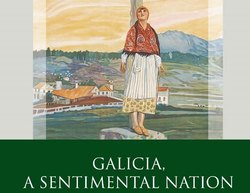Galicia, A Sentimental Nation

Реклама. ООО «ЛитРес», ИНН: 7719571260.
Оглавление
Helena Miguélez-Carballeira. Galicia, A Sentimental Nation
Отрывок из книги
IBERIAN AND LATIN AMERICAN STUDIES
Galicia, a Sentimental Nation
.....
However, the concept of Celtic-rooted sentimentality and Galician national identity was simultaneously acquiring a different signification in the texts of other commentators amassing symbolic capital in the debate over peninsular nationalist movements, which were by now undeniably a matter of concern for the Spanish state and, as such, debated in its main cultural and political institutions. Let us turn to another immediate response to Sánchez Moguel’s speech, the one delivered by Juan Armada Losada, better known as the Marqués de Figueroa, also at Madrid’s Ateneo. The Marqués de Figueroa was fast becoming one of the main representatives of the Conservative Party in Galicia and of the support movement for one of its leaders, Antonio Maura, who would be president of Spain on five different occasions thanks to the Liberal–Conservative pact for party alternation in government that ruled Spanish politics from 1885 to 1923. The Maurista doctrine on the rise of regionalisms in Spain was based on a combination of relative tolerance and control, compounded by the belief that a healthy dose of regional difference could contribute, if kept under rein, to the greater glory and stability of the Spanish state.3 The speech delivered by the Marqués de Figueroa in 1889, which bore the title of ‘De la poesía gallega’ (‘Of Galician poetry’), affords a rich example of precisely what discursive strategies would be put to the service of Spanish state control over peripheral national awakenings. For the Galician context, the semantic domain offered by the myth of Celtic origins, which had so far functioned as the construction ground for discourses of national identity, would become, instead, the battleground for their debilitation.
The speech opens with an acknowledgement of the undeniable force of peripheral regionalisms in Spain, an admission which was partly revealed in the preceding interventions of Sánchez Moguel and Núñez de Arce by their very existence and length. ‘Sólo donde hay energías y vitalidades puede surgir una literatura regional, que es el signo de fuerza y de vida’ (Only where there is energy and vitality can a regional literature emerge, as it is the sign of force and life) (1889: 6–7), affirms the Marqués de Figueroa in an attempt to paint a benevolent face on the rise of non-Spanish nationalisms, whilst acknowledging, in parallel, that this rise moved along both the literary and political planes (8). It is not long, however, before the notion appears that Galicia’s regionalist resurgence has been mainly a literary affair unconcerned with strong political claims:
.....